Inspiration Blog
Tisha B’Av Day of Remembrance
The ninth of Av, in Hebrew Tisha B’Av, has been a day of remembrance and mourning since 586 B.C.E. when the Babylonians destroyed the Holy Temple in Jerusalem and sent the Jews into exile. That day inspired the psalmist to write, “By the rivers of Babylon, we sat down and wept when we remembered Zion” (Psalm 137:1) Jews were permitted to return to Israel after the Babylonians were defeated to restore their homeland, but in 70 C.E. the Romans destroyed the Holy Temple and sent the Jews into exile yet again. This exile ended almost 2000 years later with the establishment of the State of Israel in l948. Whether by coincidence or tragic fate, the destruction of both temples occurred on the same date, the ninth of Av.
The Ninth of Av is a day that has taken on mythical and historical significance as a day of tragedy for the Jewish people. The Spanish Inquisition in l942 when the Jews were expelled from Spain occurred on Tisha B’Av. On the eve of Tisha B’Av the mass deportation began of Jews from the Warsaw Ghetto, en route to Treblinka, concentration death camp.
As we remember the destruction of the temples in Jerusalem and the exile of Jews from Jerusalem, from Spain, and the incomprehensible tragedy of the Holocaust, we are strengthened by the mandate to resist the enemy and never give up in the face of our foes.
Today the State of Israel celebrates 70 years of rebirth since l948, and yet faces a nuclear and belligerent Iran who still threatens to destroy Israel, the Hamas terrorists who send rockets, missiles, and balloons filled with bombs to destroy and murder, and the failed leadership of the Palestinians who reject every single peace offer and still “pay to slay” rewarding terrorists for murdering Israelis. The BDS movement to boycott Israel economically is misguided and unethical. The tide is beginning to shift away from the hate, away from propaganda and Anti-Semitism. 16 US States, France, Spain have laws against BDS and so called activists are being turned away. Discrimination in the form of BDS (Boycott, Divestment and Sanctions) against Israel only is clearly immoral and racist. There is no BDS for Syria, Iran, Russia, North Korea or other countries supporting terror. The US Embassy finally moving to Jerusalem is a step in the right direction. Other countries are doing the same: Guatemala, Paraguay, with Czech Republic, Romania and Honduras considering it. In the face of all this, Israel remains a modern miracle, a beacon of light and hope. A source of never ending technology and science to cure disease and improve our lives.
For a country the size of New Jersey it is even more remarkable. There are 6000 startups currently in Israel! Countries are utilizing the technology of water conservation, solar hot water, computer innovations, and the Iron Dome rocket interception system. ReWalk, enables paraplegics to stand, walk and climb stairs; while a new robotic guidance system of spine surgery helps surgeons and patients. Nobel prizes abound from Israel, a tiny country with a tremendous brain power. If only Israel’s enemies sworn to destroy her put that hatred towards innovation and science, education and medicine, there would be less suffering and less ignorance. Arab states are now eager to form alliances to confront Iran and extremists. Israel recently won the Eurovision Song Contest and will host it next year.
Remembering our tragedies has strengthened our will to live, to create, to heal and to help the world.
On Tisha B’Av we remember the destruction of Jerusalem and welcome the rebirth of Israel, the return of the US Embassy and others to Jerusalem, and the modern miracle of a once exiled people returning to their homeland. The embrace of democracy and impressive scientific, cultural, and economic achievements are miraculous given the need for security against a barrage of hatred, wars and terror.
Israel is the model for hope against despair; creation against destruction and a yearning for peace above all.
Shalom
Cantor Deborah Katchko-Gray
Ridgefield, CT
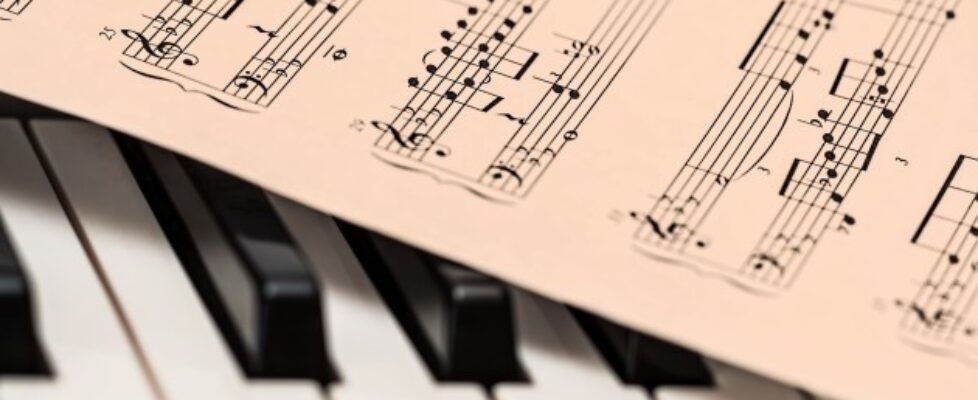
How About Some Composers Who Are Women Cantors
January 30, 2018 byВ Deborah Katchko Gray
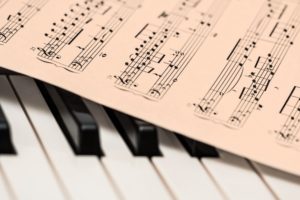
When I founded the Women Cantors’ Network in 1982, there were very few women who composed cantorial music. In fact, music often had to be adjusted for the voice of a woman cantor, sometimes even rewritten. But today, there are dozens of incredible women cantors who are composing for the synagogue. In the era of #MeToo, it is more important than ever that congregations #HearOurVoice and create spiritually safe places that respect women and use our work.
If you or your congregation is looking for more songs composed by women to sing, here is a list of amazing cantors whose work I regularly use in my own congregation. While it was difficult to narrow this down to seven (and my choices of course were purely subjective), I chose based off of melodies that really stick to your kishkes and bring the text to life. I also focused on cantors who have been composing for years; whose music is sung regularly in Reform, Renewal, Conservative, and Reconstructionist Congregations. But even as you read this, young composers are writing and their compositions will become the new “traditional” music in the future. There are dozens more composers whose work is worthy of attention, but hopefully this list can get you started.
Cantor Benjie Ellen Schiller. As a professor of Cantorial Arts at Hebrew Union College (HUC) NYC, Benjie has inspired a new generation of cantors and exposed them to her passion for meaningful Jewish music. Choirs all over the world sing her “Halleluhu Psalm 150” and her new “Oseh Shalom” has been performed with orchestra and world class singers. Personally, I sing “May You Live to See Your World Fulfilled” at every B’nai Mitzvah and “Zeh Dodi” at every wedding. Benjie is also publishing a songbook in the near future—it belongs in every cantor’s library! Her CD, A World Fulfilled, is magnificent.
Cantor Natasha Hirschhorn. Natasha is the Music Director of Congregation Anshe Chesed in New York City and is part of the faculty both of HUC and the Jewish Theological Seminary. Her music is haunting and unusual. My congregation’s choir sings her rendition of “Oseh Shalom” during the High Holidays, and I believe that her “Yesh Adonai Bamakom Hazeh” (“G-d was in this place and I did not know”) has the power to cause a spiritual awakening every time it is sung.
Cantor Robbi Sherwin. Robbi is a force of nature—a unique mandolin playing cantor/rabbi who plays with the popular band, Sababa, and has been a leader in the Women Cantors’ Network. She and Marci Vitikus (also a member of the Women Cantors’ Network) co-wrote “Atah Kadosh,” which my congregation uses to complete the chanting aloud of the Amidah each week. Her “Maariv Aravim” and “Love Adonai Your G-d” are also both notable.
Cantor Rachelle Nelson. Rachelle is a composer of Jewish music from South Florida. She has created several songbooks and CDs and also runs In the Spirit Music Foundation, which encourages writing new inspirational Jewish liturgical music. She graduated in 1984 from HUC’s School of Sacred Music (now the Debbie Friedman School of Sacred Music). Her “Modim Anachnu Lach” is a Hebrew-English prayer of giving thanks that I use at my interfaith Thanksgiving services.
Beth Styles. Beth is a producer/composer/musician/vocalist and a popular Artist in Residence at synagogues. As a composer, her music is fresh and unusual, a mix of Jewish gospel flavored with deeply spiritual and lush melodies that stick to your kishkes. I met Beth in the 1980s when she produced my first CD, Jewish Soul. (She also produced for Diana Ross.) Years later, she is a frequent musical guest in my synagogue creating a “Shabbat Experience” that moves and inspires. I could list a dozen of her songs, but “Grateful,” “Light These Lights,” “Mi Sheberach,” “Shehecheyanu,” “Hashkivenu,” “Adonai S’fatai,” and “Shabbat Shalom” have now become “traditional” songs in my synagogue.
Cantor Lisa Levine. Lisa is a worship artist, songwriter, recording artist, and yoga prayer facilitator, who has been writing music for over 30 years. She created “Yoga Shalom,” combining Yoga and Jewish prayerful movement and worship. Her songbooks and CDs are numerous and well received, though I love her “Mi Sheberach” and “V’shamru” in particular. These tunes are essential parts of my Shabbat services, bringing an easy singing and soulful quality to song and worship.
Ellen Allard. Ellen is arguably the best known children’s composer and teacher around today. Her captivating energy and catchy tunes are classics in the preschool communities. “Holy Holiness” is one of those rare songs that can be perfect for three year olds, teenagers leading a service and/or any intergenerational group praying. The piece’s simple repetition of beautiful lyrics, like the phrase, “All around everywhere, holy holiness,” is transformative. “I feel like an angel,” said one young boy after singing this work. That’s what I hope to create in a service—a sense of holy transcendence, a feeling that is uplifting and peaceful. “Holy Holiness” does that every time!
Want more music written by women? The Women Cantors’ Network is soon publishing a new songbook that will shed light on many known and unknown composers.
This blogpost was initially published byВ Live from the Lilith BlogВ on January 30, 20178 byВ Deborah Katchko Gray

HHD Sermons
Here are the texts of Rabbi Reiner’s sermons (click to open)
Hineni, Mah L’Cha Po—Behold Why We Are Here – Erev Rosh Hashanah

Hashkivenu One day Mashup at Beth Style’s party
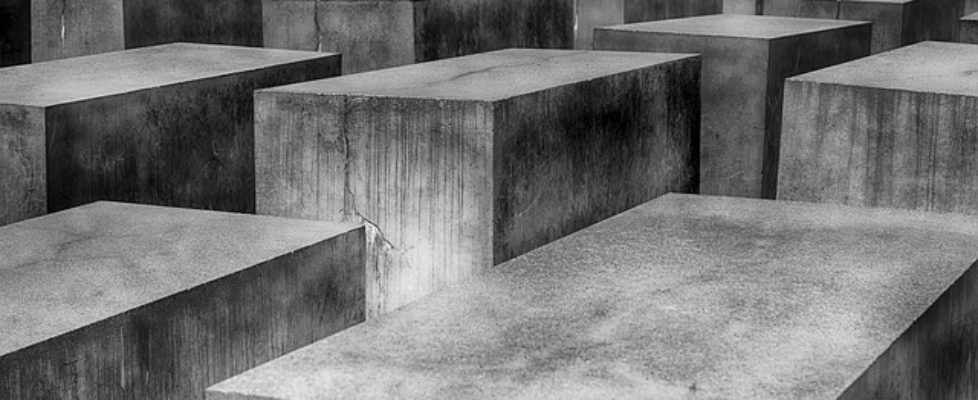
Thoughts on Teaching the Holocaust
by Cantor Deborah Katchko-Gray
There are more questions than answers. Perhaps there are no good answers anyway, but we must ask the questions to remain human. Elie Wiesel of blessed memory was the teacher of teachers, our modern day prophet who dared ask questions and dared to admit there are no good answers. His answer was to remember- remember the victims, remember the history of the victims and yet, reject despair and continue to hope.
Prof. Avinoam Patt, of the University of Hartford presented an excellent workshop at the Museum of Jewish Heritage last November. He acknowledged “the enormous challenge of teaching the Holocaust, and the sacred burden of memory.” He focused on literature, diaries, memoirs and fiction to help students develop empathy. The Diary of Chaim Kaplan shared fears, rumors, and the struggle of daily life. In l940, he thought this is the worst it could get- having no idea what was lying ahead in the concentration camps. In the face of life and death, remarkably the ghetto library still celebrated the loan of the 100,000th book. In A Diary in the Vilna Ghetto, Hermann Kruk shared, “ Today there was a celebration in the ghetto- the loan of the 100,00th book from the ghetto library…reading books in the ghetto is the biggest treat there is. Books link us to freedom; books connect us to the world.” If you want to understand Jewish values, it is right here- study, intellectual growth, and moral values. Prof. Wiesel taught us that having advanced degrees like the Nazi leadership was useless without moral and ethical education.
I remember a class with Prof. Elie Wiesel when he described the sheer joy and privilege of holding a prayer book. It shook me to my core- really? How many times have I held a prayer book, and how many times did I feel it was a privilege? This was the first time I understood the power of prayer- imagine being in a concentration camp and the mere act of owning a prayer book would be met with instant death.
Elie Wiesel described the power of holding a prayer book in your hands. The connection to our ancestor’s prayers, our prayers, our connection to G-d and the hope and strength we can get from that connection.
Reading and studying the diaries of the Holocaust can bring us closer to the hearts and souls that were lost. Those brave enough to defy the Nazis and write down the daily atrocities for future generations. Risking one’s life to write something you’re not even sure will survive you. The least we can do is read them and remember.
Primo Levi wrote, “ If This Is a Man”…I commend these words to you- carve them in your hearts…”
Elie Wiesel wrote in “ Night”, “ … never shall I forget those moments that murdered my G-d and my soul and turned my dreams to ashes. Never shall I forget those things, even were I condemned to live as long as G-d Himself. Never.”
This article was first published on Forward

Friday service at Shir Shalom had powerful message
Wilton resident Stephen Hudspeth submitted this letter to The Ridgefield Press and its sister paper, The Wilton Bulletin, after a service he attended at Ridgefield’s Reform Jewish Congregation Shir Shalom on Friday evening January 13, 2017.
There are some experiences that fit the times we live in perfectly. One such occurred this past Friday at the main evening service at Reform Jewish Congregation Shir Shalom on Peaceable Street.
In some respects, it was a continuation of a fourteen-year tradition for observance of the weekend devoted to the memory of the Rev. Dr. Martin Luther King, Jr. Each of those years on the Friday of that weekend, the Congregation’s musical director Cantor Deborah Katchko-Gray has invited the Serendipity Chorale of Southwestern Connecticut – regularly augmented by members of the Ridgefield Chorale and the Ridgefield Congregational Church’s choir — to join the Congregation’s own singers and other musicians in a program that blends Jewish Shabbat-observance music with Spirituals and Gospel-style praise music in a joyous and uplifting service that honors the differences in both traditions while it also underscores their striking similarities. The Serendipity Chorale celebrated its 40th anniversary this past year and is directed by the cantor’s very good friend Gigi Van Dyke.
For both Jews and African-Americans, the experience of slavery has been a seminal part of community life and heritage, and for both, the cry of freedom and struggle for justice resonates strongly. And it is surely the case that the powerful and transformative speeches of Dr. King as well as the lyrics of many soul-stirring Spirituals echo with the words of the Hebrew Bible: “Let freedom roll down like a river, and righteousness like a mighty stream”; “Go down, Moses, way down to Egypt land; tell old Pharaoh to let my people go!”; “Didn’t my Lord delivery Daniel, then why not every man?!”
And in the Shabbat music lexicon of Shir Shalom, whose very name is translated “Song of Peace”, are a host of deeply moving pieces both ancient and as modern as the 21st Century that, just like Spirituals, can encourage clapping and dancing as well as deep reflection. Cantor Deborah Katchko-Gray comes from one of the world’s most distinguished cantorial families, and her knowledge of, and facility in, a huge repertoire flows directly from that proud tradition. Likewise, Director Van Dyke’s familiarity with the vast Spiritual and Gospel repertoire is legendary in this area, and the combination of the two and their choirs and instrumentalists assures a remarkable experience each year.
This year especially, the importance of coming together has been underscored by the deep fissures that this past national election revealed and exacerbated. After a warm and joyous welcome to all, Shir Shalom’s Rabbi David Reiner candidly and courageously addressed those issues in his sermon, underscoring the importance of finding common ground, engaging in reconciliation, and restoring a sense of community.
He referenced the principles recently enunciated by the leadership of his Congregation in four guiding precepts that include embracing “the opportunities democracy provides and the responsibilities it requires”; cherishing “the diversity [that is] an essential component of our community and our country” and “stand[ing] side-by-side with those who share those values”; rejecting “hate, discrimination, and bias in any and all forms, language that divides, discriminates, or demeans, and behavior that incites hatred or promotes fear”; and finally, pledging “to oppose bigotry, bias, bullying of all kinds and at all turns, to provide comfort, support, and strength for those who fear or face such bias, and to be vigilant to protect these values.”
That is a remarkable statement. And the responsive readings compiled by Rabbi Reiner from multiple sources that formed a powerful part of the liturgy for this service included this striking sentence: “Hate cannot drive out hate; only love can do that.”
So his sermon’s message was one of peace and reconciliation but also of challenge: to be our best as we do our best, as we listen to one another with respect and openness, and as we model the Congregation’s four guiding precepts in our own lives.
That is a message that would have resonated strongly with Dr. King, and he would undoubtedly conclude — as Rabbi Reiner himself did, quoting Dr. King — with a vision for a future in which formerly bitterly divided people (“the sons of former slaves and the sons of former slaveowners”) “will be able to sit down together at the table of brotherhood.” That is a result we all need to accomplish across political divides, racial differences, ethnic and national-origin differences, and all of those amazingly diverse attributes of America that are, and have always been, its great strength. This service offered a huge and much-needed beacon of light pointing in that direction.
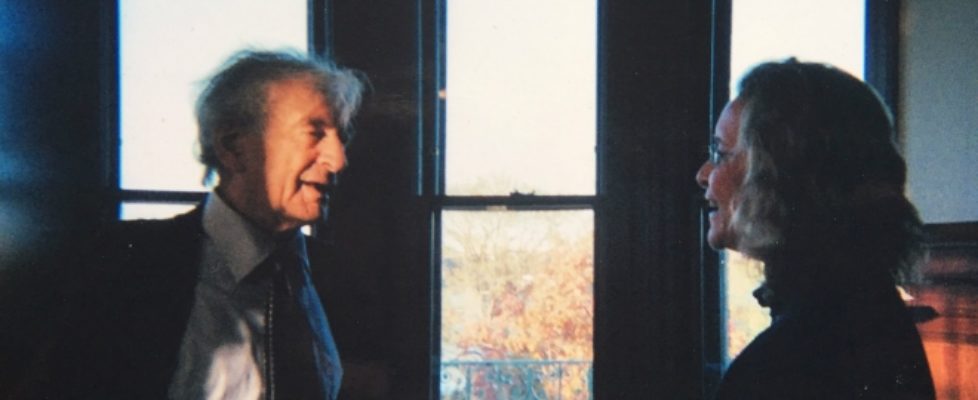
How Elie Wiesel Taught Me to Sing the Miracle of Jewish Survival
Prof. Wiesel taught us that to be Jewish was not only a miracle but a holy responsibility to remember and continue.
http://forward.com/scribe/346614/how-elie-wiesel-taught-me-to-sing-the-miracle-of-jewish-survival/

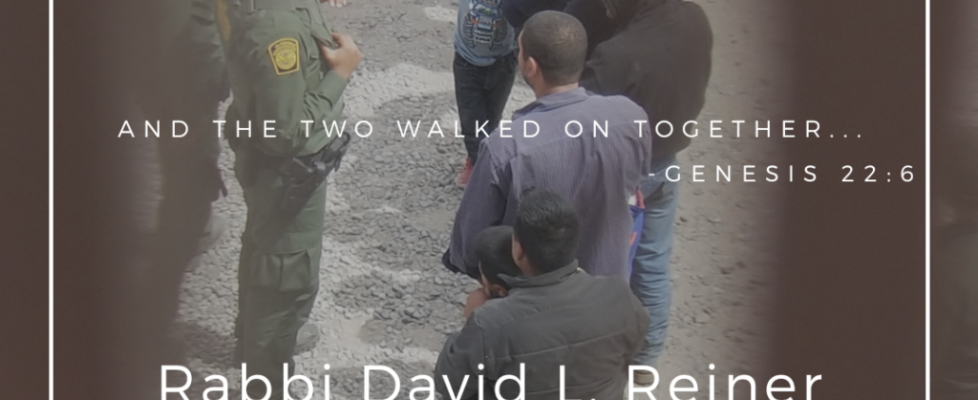

It is not good to be alone
October 3, 2019 by Rabbi David Reiner • Inspiration Blog, Sermons
PDF Embedder requires a url attributeText content